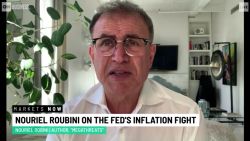I want to put some money into alternative investments, but I’m not sure where to begin. What’s the safest alternative for an average investor?
Alternative investments are becoming increasingly attractive and more readily available to the average investor.
With interest rates on the rise and the bull market beginning to show signs of fatigue, investors are turning to these investments to increase their diversification, grow their returns and get some downside protection.
Easier access to alternative investments like commodities, cryptocurrencies, collectibles, venture capital, real estate or private equity, also means these holdings are no longer solely for the uber-wealthy.
But how safe are they for average investors?
“Some alternatives are investments, others are no more than speculation,” says Bradley Nelson, an investment adviser and president at Lyon Park Advisors.

Traditional investments, he says, have intrinsic worth, most often a stream of revenue. “But the worth of a speculative investment depends primarily on the ‘greater fool theory’, or, what someone else is willing to pay for it.”
While alternative investments are attractive since they are generally negatively correlated with the stock market and some, including commodities like gold or oil, tend to be good hedges against inflation, they also come with many challenges.
They may have higher fees and steeper barriers to entry. They can also be more volatile and are often less liquid than stocks or bonds.
But they can sometimes carry higher upside potential, as long as you do your research before investing.
Know what you’re getting into
Alternative investments should be approached the same way as traditional investments, says Nick Stanley, a certified investment management analyst with Protege Wealth Planning.
He says to ask yourself the following questions: Does the investment improve my portfolio’s diversification? Can I afford to bear the risk? Do I understand how this investment strategy works and the underlying investments?
Stanley likes structured products and exchange-traded funds, or ETFs, for retail investors because they take complicated alternative investments and make them manageable for less sophisticated investors.
“Most alternative investments are ‘alternative’ because they typically utilize investments, or strategies, that are difficult for most people outside of the financial services industry to understand,” Stanley says. “They also may carry risk that the average investor cannot afford.”
Structured products can take a complex investment strategy like using short positions, options or futures, and bundle them together into a product that consumers can understand.
“Before deciding on structured products, investors should understand their potential maximum gains or losses.”
Tread lightly
A big mistake alternative investors make is chasing yield or returns, says Stanley.
“I tell clients that if something outperforms enough to draw public attention, it’s probably already too late to make the investment,” he says.
With cryptocurrencies, he says, investors hear about 100% gains and want to jump on board. But most likely, the owners of cryptocurrency exchanges will earn more profits from the crypto fever, than the actual investors in the currency.
Another pitfall with alternatives is purchasing an individual asset or security. That will greatly increase your exposure to risk, says Nelson. “We always recommend a mutual fund when investing in an asset category.”
For example, rather than going all in on a single real estate investment, Nelson recommends looking at real estate investment trusts, or REITs. “Real estate is a very traditional alternative investment and there are several options for investment in low-expense REIT mutual funds.”
With investments like alternative lending (a peer-to-peer platform not directly associated with traditional banks and mortgage lenders) or reinsurance (insurance for insurance companies) he says to proceed with great caution.
“Only invest a small allocation to your portfolio,” he advises.
Also be wary of commodity funds, says Chris Jackson, certified financial planner and founder of Lionshare Partners.
“Commodity funds don’t invest directly in the commodity but in their commodity future contracts,” says Jackson. This means investors are buying futures when they are higher on the curve, at a more expensive price, and selling them at a lower price.
“Buying high and selling low — not a profitable practice,” he says.
Proceed with caution
Commodities appeared as an attractive alternative investment decades ago, but are now overused by investors, says Nelson. He no longer recommends them.
Also on his no-go list: private equity and venture capital, which he says have expenses that are too high and transparency that is too low.
Nelson also steers clear of investing in raw land, which does not produce any income and is pure speculation, and cryptocurrency since it’s unstable and does not generate income.
And please put down the collectibles, he says.
“They don’t generate income, their worth is generally not intrinsic but only what other people are willing to pay,” he says. “Good luck selling your Beanie Baby collection.”






















